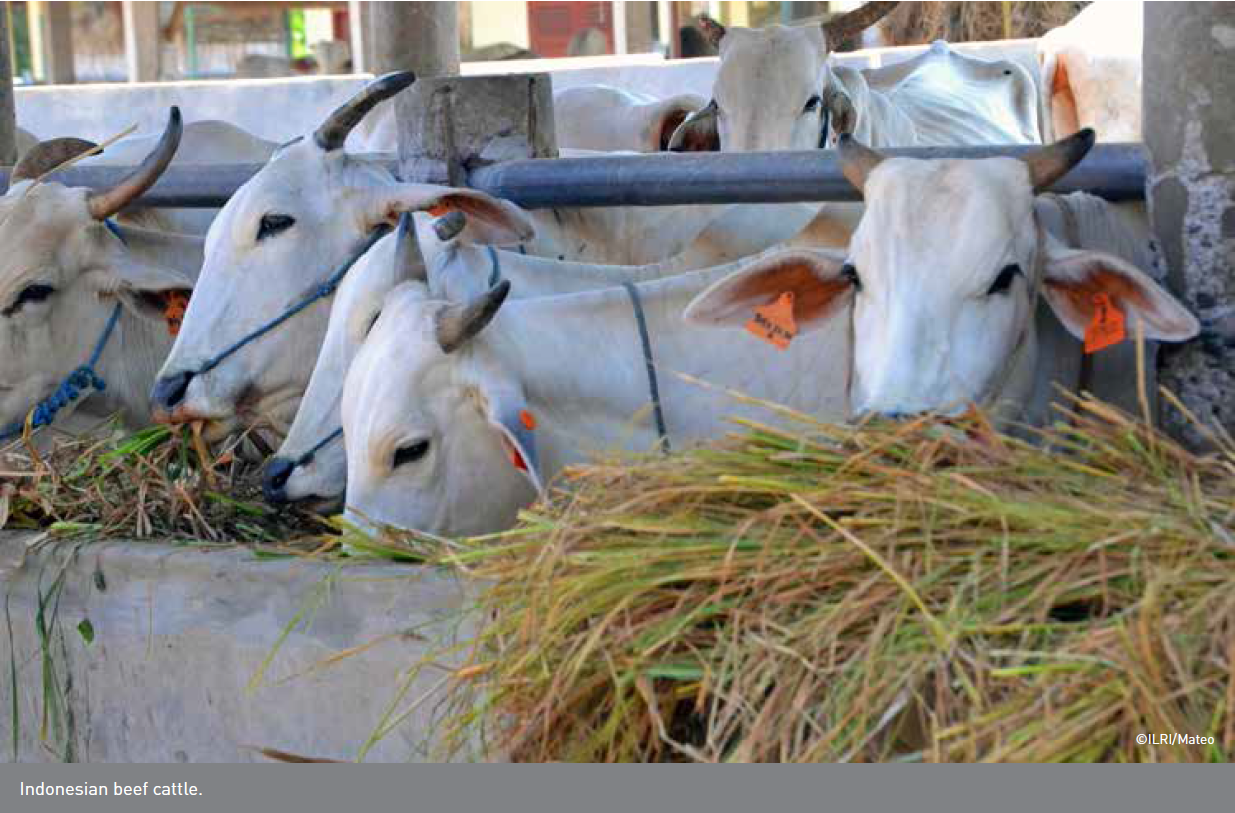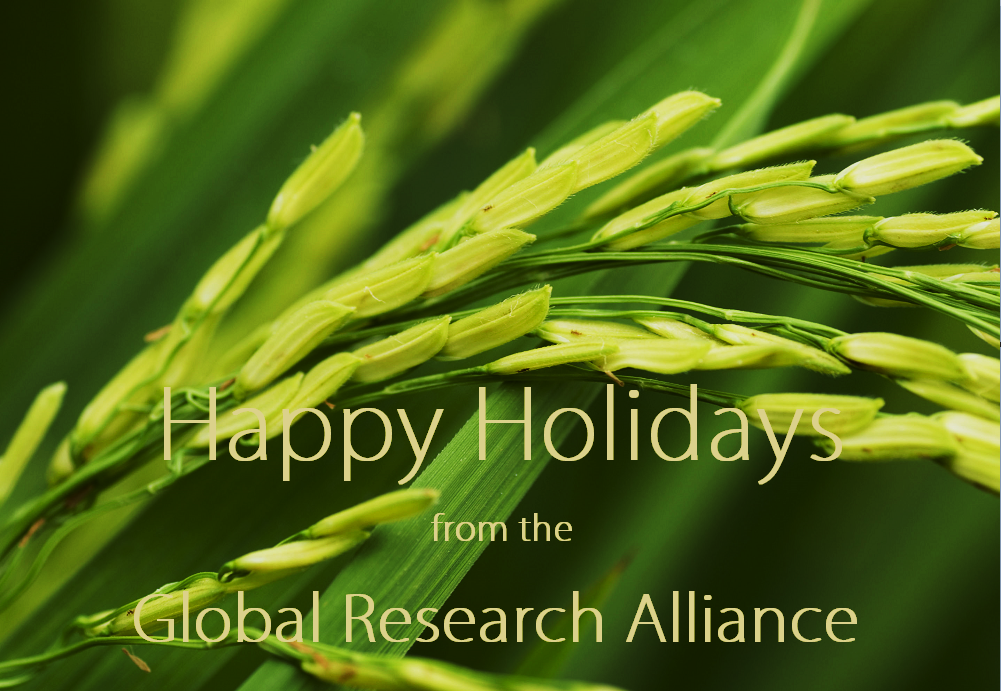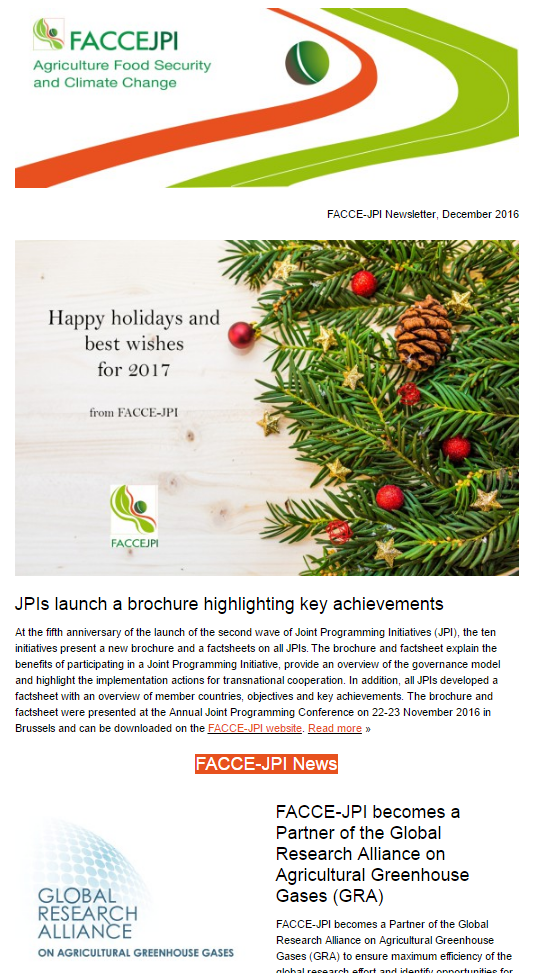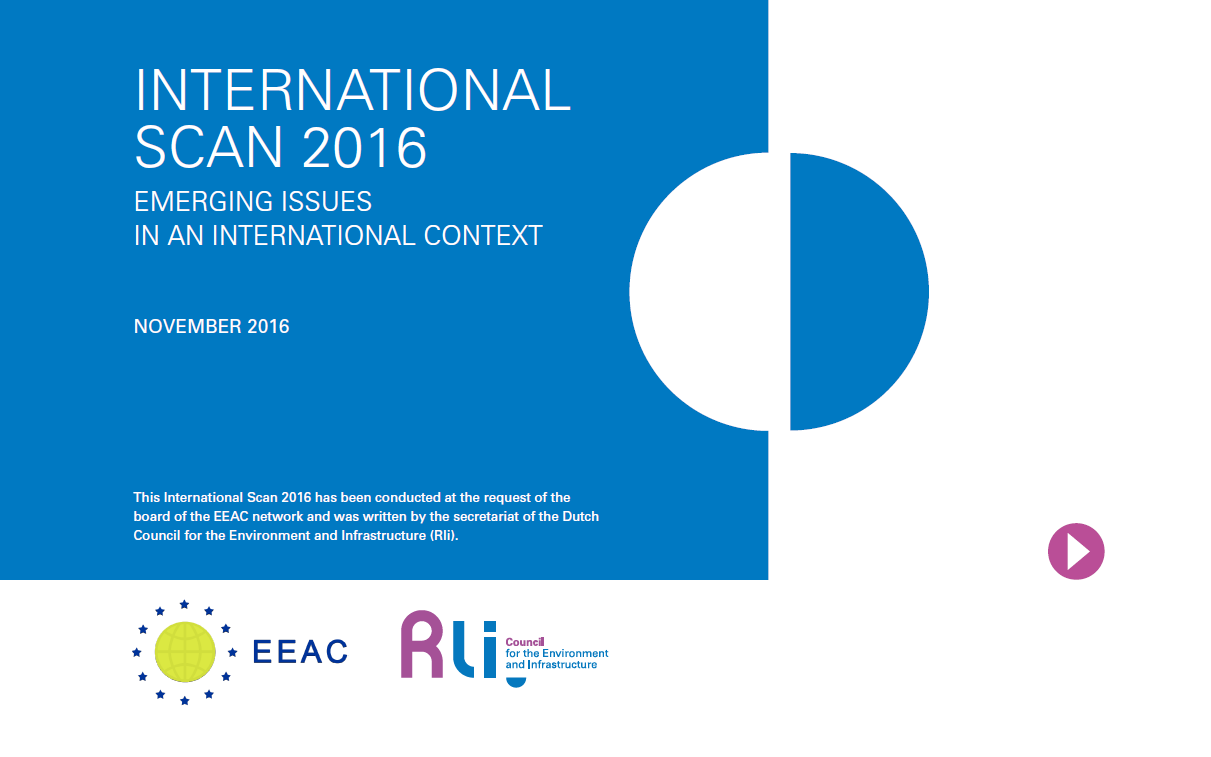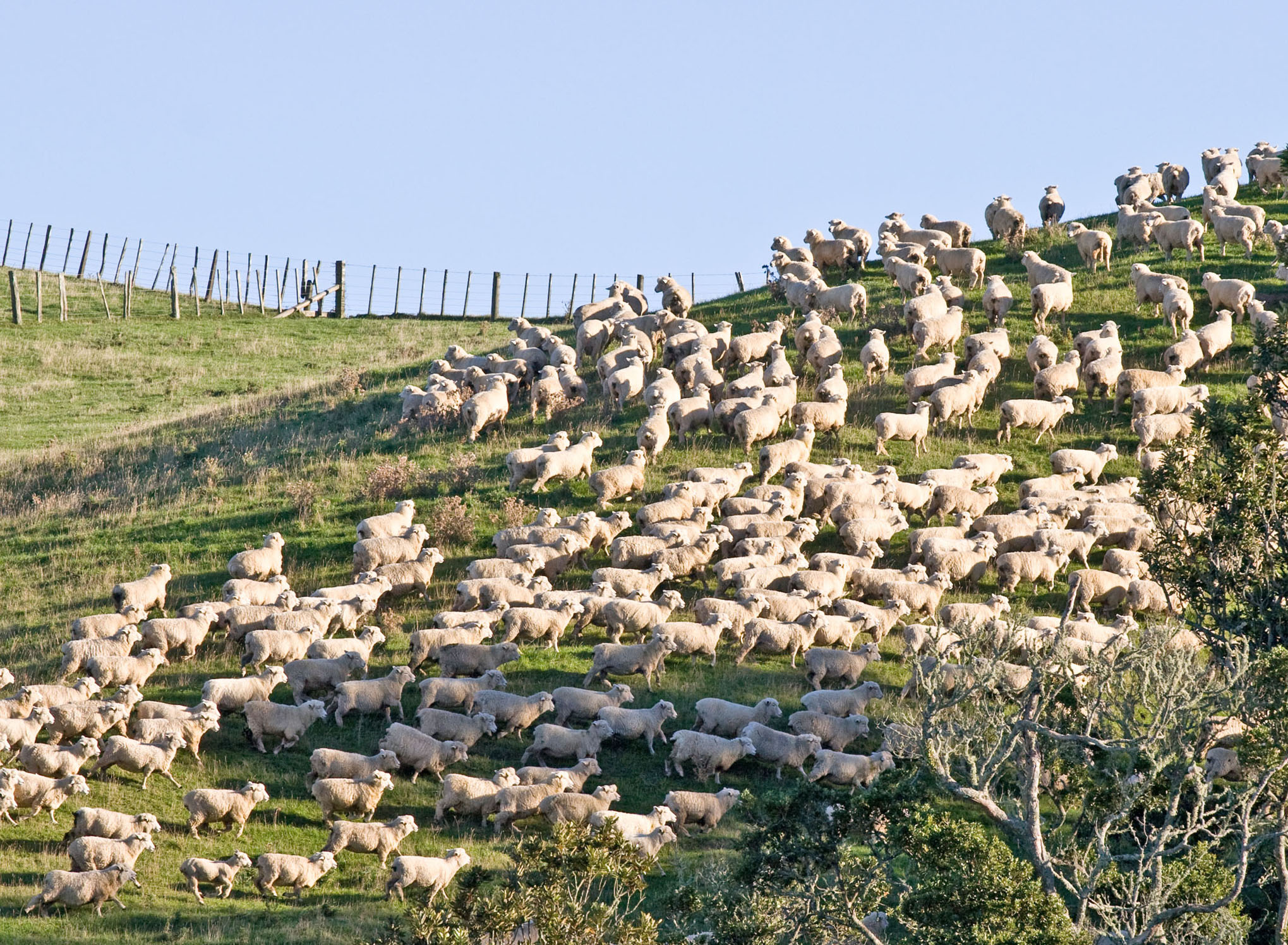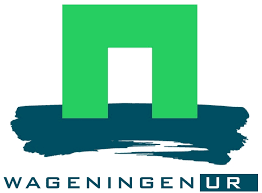A joint project is underway to help countries improve the way they measure, report and verify greenhouse gas emissions from livestock. Each country currently has different methods of measuring, reporting and verifying (known colloquially as ‘MRV’).
The project is divided into four steps:
- Characterise international requirements for MRV
- Identify the approaches countries are currently taking
- Conduct a survey to identify the reasons for these approaches
- Make recommendations
It is hoped that a first draft of findings will be published in February 2017.
The joint project is being implemented by the Livestock Research Group of the Global Research Alliance and our Partners CGIAR’s Research Program on Climate Change, Agriculture and Food Security (CCAFS), and the Food & Agriculture Organisation (FAO), with support from UNIQUE Forestry & Land Use, and the New Zealand Government.
Read the full article in the December 2016 LRG newsletter
Read the latest newsletter of the Global Research Alliance’s Livestock Research Group here.
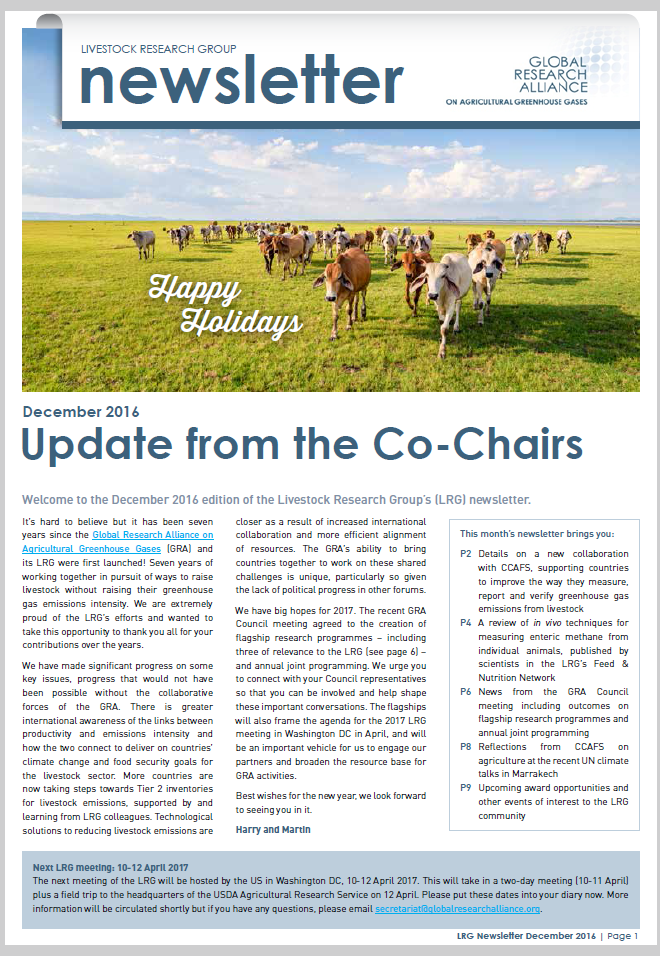
The January 2017 newsletter of FACCE SURPLUS, a funding call of our Partner FACCE-JPI, includes a new call on small-scale biorefineries.
Read the full newsletter here.
A Research Associate position is being offered in the Agriculture, Food & Rural Development department at Newcastle University, United Kingdom.
This position will help enhance the sustainability of non-ruminant livestock systems by improving their efficiency whilst taking into account new development in breeding and feeding such livestock. Specific responsibilities will include:
- leading activities on environmental impact assessment and simulation modelling of nutrient flows in livestock systems
- using initiative and creativity to develop existing or new simulation agri-environmental models
- using models to answer specific research questions, eg ‘How do we feed new livestock genotypes to reduce environmental impact’?
The candidate will need to have an awarded PhD in a relevant area of science (biological or environmental impact modelling/assessment), clear understanding of simulation modelling of environmental input or biological processes, and experience of understanding agri-environmental research.
The post is available fixed term and full time for 30 months from 01.03.2017, with a salary of 29,943 pounds (progression to 38,183 pounds).
Click here for the position description and information.
Click here to visit the university’s website.
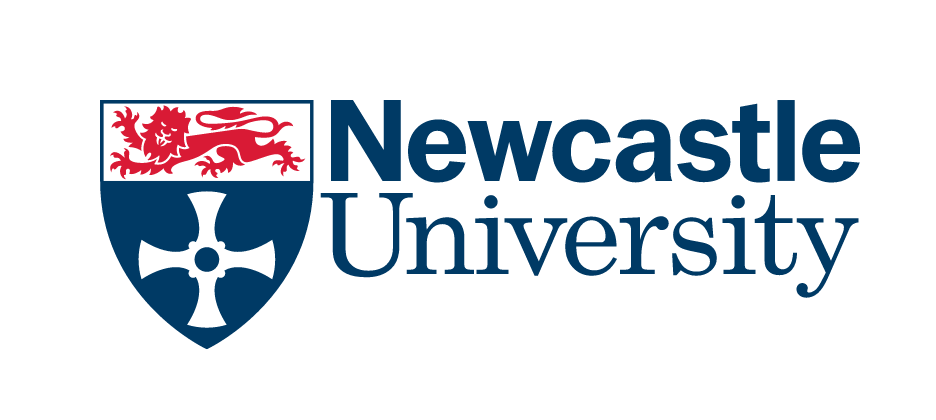
The Global Research Alliance is delighted to welcome our 47th Member Country, South Africa. South Africa has already been involved in stocktakes and regional workshops run by the Livestock Research Group, and newer areas of interest include topics such as GHG Inventories. We look forward to continuing to work together to grow more food without growing more greenhouse gases.
The Global Research Alliance is very pleased to welcome the Joint Programming Initiative on Agriculture, Food Security and Climate Change (FACCE_JPI) on board as a Partner.
FACCE-JPI provides and steers research to support sustainable agricultural production and economic growth, to contribute to a European bio-based economy, while maintaining and restoring ecosystem services under current and future climate change.
Both the GRA and FACCE-JPI aim to enhance information exchange, cooperation, programme alignment and mutual learning of best practices in research programming. Expected collaborative activities include for example the development of joint research projects, programmes or actions, participation of FACCE-JPI representatives in GRA Flagship Projects, exchange on research methods and data sets and cooperation in the dissemination and valorisation of scientific results.
FACCE-JPI and the GRA have already cooperated successfully on several issues:
- FACCE-JPI launched a Multi-partner Call on GHG Mitigation, with 3 GRA countries (USA, New Zealand, Canada) in January 2013
- The Secretariats of both initiatives have held ongoing discussions on possible cooperation in soil-related research (in coordination with the 4/1000 research initiative)
- The Secretariats of both initiatives have shared good practices and approaches for international scientific cooperation.
- The GRA is represents on the FACCE-JPI Stakeholder Advisory Board.
Out of the 46 GRA members, 15 are also members/associated members in FACCE-JPI.
Read the new December 2016 FACCE-JAI newsletter
The third annual Global Research Alliance – World Farmers Organisation Farmer Study Tour is underway in New Zealand this week (28 November – 4 December 2016). This joint activity supports the Partnership between the two organisations and was initiated to better connect the policy, science and farming sectors, and allow for the exchange of ideas and experiences to increase the skills needed to reduce agricultural greenhouse gas emissions on the farm.
The Participants from Brussels, Italy, France, Argentina, Switzerland, Uruguay, Germany, and Japan are selected based on their standing within farming communities in their home country and ability to take up and share new ideas and technologies.
This year’s Tour began with a Forum, opened by the Hon Nathan Guy, Minister for Primary Industries New Zealand, discussions at the forum centred on climate change challenges for farmers and the skills, technologies and practices available or required. The participants will then travel to the New Zealand Agricultural Greenhouse Gas Centre and Massey University in Palmerston North before visiting a dairy farm and sheep and beef farms in the lower North Island.
https://www.beehive.govt.nz/release/world-farmers-organisation-study-tour-welcomed-new-zealand
In a recent study by Wageningen University & Research Centre, management interventions to increase the supply of organic carbon were tested with a linear programming model called NutMatch. NutMatch was applied to crop rotations with different mixtures of organic cattle slurry, pig slurry or compost, or with a mineral fertiliser. The study found that rotational crop residues, cattle slurry and compost each substantially contributed to soil organic carbon accumulation (range 200-450 kg C ha-1 yr-1); contributions of pig slurry and cover crops were small (20-50 kg C ha-1 yr-1). In terms of greenhouse gas emissions, it appears that the trade-offs between carbon inputs and emissions of greenhouse gases (notably N2O) or other pollutants (NO3, NH3) can be substantial.
The International Agricultural Research Cooperation for Climate Change (the Follow-up side event of G7 Niigata Agriculture Ministers’ Meeting at the COP22, UN Climate Change Conference 2016) was held in Marrakech, Morocco on November 10th, 2016. The Government of Japan chaired the event, which followed soon after the entry into force of the Paris Agreement on November 4th, 2016. Representative stakeholders from G7 Countries (Canada, France, Germany, Italy, Japan and United States of America) and two international organizations (Food and Agriculture Organization of the United Nations (FAO) and Consultative Group on International Agricultural Research (CGIAR)) attended the side event, with four international initiatives, including the GRA, the GACSA, the 4/1000 Initiative, and the Global Soil Partnership (GSP). Approximately 40 observers also attended.
We are very pleased to welcome our The Global Open Data for Agriculture & Nutrition (GODAN) as our newest Partner of the GRA.
GODAN presented at our 2015 Council Meeting in Des Moines, USA. GODAN supports the proactive sharing of open data to make information about agriculture and nutrition available, accessible and usable to deal with the urgent challenge of ensuring world food securityjk – demonstrating the same principles as the GRA.

